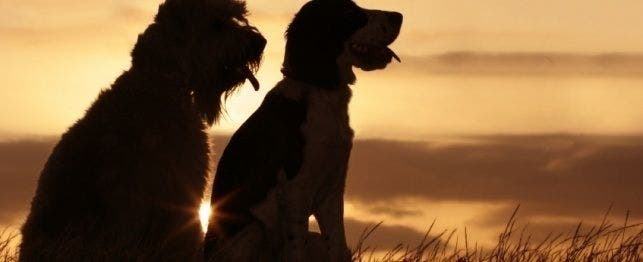
Furry Wisdom: The Meanings of Animal Idioms
Animal Idioms: The Meaning of Common Cat and Animal Sayings
Modern language is full of colorful sayings that bring to mind our favorite animal companions. When something it is particularly appealing, you might say that it’s “the cat’s pajamas.” A wayward hunt for an answer might leave you “barking up the wrong tree.” When it’s pouring we say it’s “raining cats and dogs,” whereas a chilly evening might be a “three-dog night.” You might even enjoy taking a break from the heat during the “dog days of summer.” These are examples of idioms, expressions which have a meaning differing from its literal one. Today, many animal-related idioms are commonplace, but have you ever wondered about the stories behind the sayings? The history of some might surprise you.
Pet lovers think the animals that share their lives are wonderful, and throughout history others have agreed. Several common idioms refer to animals when describing something as exceptionally pleasing.
“The cat’s pajamas” gained popularity in the 1920s as one of many “nonsense phrases” used to describe something good. It was during this period that use of the term “the bee’s knees” also came about. According to author Stuart Berg Flexner, nonsense phrases were the intentional combination of outlandish words and had little, if any, deeper significance.
Although “the cat’s meow” became common-use around this time as well, just one man might be to thank for that. The American cartoonist Thomas Dorgan is regularly credited with popularizing the phrase, but it is unclear whether he created it. Additional sources suggest that “the cat’s meow” was derived either from the idea that cats meow when happy or that the subject in question was too cool for words, hence the need for a joyful meow.
Idioms are particularly handy when describing a situation or individual, and animal-related ones are no exception. “A dog’s breakfast” is an idiom with British origins used to describe a total mess or disaster. Believe it or not, this one is thought to originate from bad cooking. If a particular recipe was botched so badly that no person would eat it, it would be given to the dog. These culinary wrecks are thought to be the inspiration behind the apt description for anything that ended poorly. Interestingly, for unknown reasons a “dog’s dinner” came to mean “one who is dressed in a flashy manner.”
Have you ever tried to solve a problem only to find that you were approaching it in the wrong manner? Some might say that you were “barking up the wrong tree.” This idiom harks back to the practice of hunting with dogs. The dogs were often used to flush game out from hiding spots or track them so that their human companions might find their quarry. These trusty canines often chased animals such as raccoons into trees, where their owners could easily find them. If a dog followed the wrong scent, however, they might find themselves barking away at a tree that held nothing. This idiom first became popular around 1832, and was rumored to be a favorite expression of Davy Crockett.
Many people even describe the weather by invoking images of animals. The “dog days of summer” are the hottest days of the season, a time when you and your pet might want nothing more than to relax in air conditioning. The origins of the phrase, however, date back to the ancient Romans. It was the Romans who first noticed that the hottest days of the summer seemed to coincide with the appearance of Sirius, the so-called “dog star” and a part of the Canis Major (“big dog”) constellation. At one point these days were referred to as “Canicular dayes.” But even the coldest nights have interesting idioms and the history to go with them. One Australian idiom refers to the practice of sleeping alongside a dog for warmth during cold evenings. A particularly frosty night might require more than one companion, hence it is a “three-dog night.”
Finally, we can likely credit poor sanitation for one of the most common animal idioms in use today. It’s possible that you’ve looked outside during an intense storm and thought “Wow, it’s raining cats and dogs out there.” Theories abound on the exact origins of the phrase, indicating everything from cats and dogs being washed off the rooftops where they were kept to a link between companion animals and the Norse god Odin. Far more likely, however, is the idiom’s link to 17th century England. During this time period the sanitation of public areas such as streets was not a high priority. Debris including trash and the occasional body of a deceased animal collected in the streets until a strong rainstorm came through. The rush of water would carry the bodies through the city, and the casual observer might see the gruesome scene and suppose that the animals had fallen from the sky during the storm. One article published in 1710 described this occurrence in detail, but a modified form of the phrase (“It shall rain…dogs and polecats”) was published in 1653 in Richard Brome’s The City Wit. A “polecat” refers to a weasel or skunk, but it’s not a far jump from “polecat” to “cat.”
Animals have always been a rich source of imagery in language, something that has continued even to present day. Whether you’re trying to describe a bungled plan or merely talking about the weather, animal-related idioms are a part of many people’s everyday language. Digging up their origins can be as difficult as herding cats (origin unknown, but thought to have its roots in the information technology industry-really!) but these sayings often have a rich and intriguing history behind them.